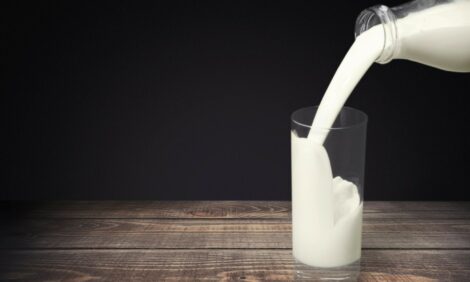



Arla Foods UK Welcomes Success of Courtauld Commitment 3
UK - Arla Foods UK, the farmer-owned dairy company, has welcomed Waste & Resource Action Programme’s (WRAP) results of Courtauld Commitment 3 (CC3), the food and drink industry’s ambitious approach to reduce food waste in the UK.Tomas Pietrangeli, Managing Director at Arla Foods UK, said: “Arla Foods UK proudly welcomes the successes evident in today’s CC3 results, in which we played a leading role but the work doesn’t stop there. As a founding signatory to last year’s Courtauld Commitment 2025 and our leading role in the Dairy Roadmap Plan, Arla’s commitment to environmental sustainability and efficiency is clear to see and we will build on the results we have achieved already.
Since 2005, Arla’s UK packaging carbon emissions have fallen over 25 per cent, through light-weighting and the use of recycled materials. Arla has met it Dairy Roadmap target of incorporating 30 per cent recycled plastic in our fresh milk bottles heading towards 50 per cent by 2020
The slight increase in household food waste, from 7 million tonnes in 2012 to 7.3 million tonnes in 2015, highlights the need for the industry to adhere to further commitments to reduce food waste. Arla Foods has already made great strides in utilising surplus food in the supply chain including a total of 476 tonnes of product in 2016, which was enough to produce over a million meals.
Our business has set ourselves challenging targets and have deliberately stretched ourselves. Having a robust set of environment targets doesn’t just make ethical sense, it makes good business sense.”
CC3, of which Arla Foods UK was one of 50 voluntary signatories, challenged the food and drink industry to achieve three top line targets between 2012 and 2015:
- A reduction of food and packaging waste by 3 per cent in manufacturing and retail
- Improvements on packaging design and recyclability in the grocery supply chain without increase carbon impact
- A reduction in household food and drink waste by 5 per cent
Research out last week from WRAP, the organisation which leads the scheme, indicates several successes in meeting these goals.
The industry met its 3 per cent target in cutting ingredient, product and packaging waste in manufacturing and retail. This represents the equivalent of 219,000 tonnes of packaging, or 555,000 tonnes of CO2e saving over the lifetime of the commitment.
A 7 per cent reduction in carbon emissions from packaging production also significantly exceeded CC3’s target of keeping carbon emissions from packaging level.
TheCattleSite News Desk


